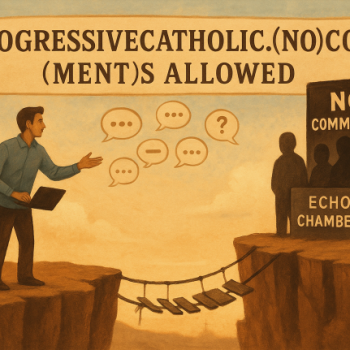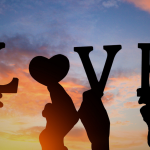Troubadour lends his voice, and ear, to Baghdad
I’m sure he doesn’t remember it. Actually, I pray he doesn’t, but I don’t know for certain because I didn’t have the guts to bring it up when we spoke on the phone the other day.
The scene of the crime: Backstage at a theater in Ann Arbor, Mich. About a dozen years ago.
Bruce Cockburn, the Canadian singer-songwriter probably best known (unfortunately) for the song “Rocket Launcher,” had just finished playing a gig and graciously agreed to meet with some local press, including several reporters from college newspapers.
There we were, one of my roommates and I: 20-year-old aspiring journalists, booklearned, desperately earnest and — with the benefit of hindsight, I’ve since realized — hopelessly myopic about the reality beyond our own itty bitty universe.
We were very excited. Bruce was our favorite, all folk-rock tough and kind of Jesusy.
Cockburn had played a couple of hours worth of gorgeous, rousing songs about faith and love, justice and war, suffering and South American death squads, pestilence in Africa and corrupt governments, physical torture and spiritual bullying, unthinkable oppression and divine grace.
His music is sacramental, we told each other, flushed with inspiration and righteous indignation. I really thought I got what he was saying.
Wrong.
“Bruce, man, our school, it’s so oppressive,” I remember telling the down-to-earth singer as he twisted the top off a beer and listened to us, indulgently.
“Oppressive?” he gently asked.
“Yeah. Like, spiritually oppressive and judgmental. You wouldn’t believe it,” I said, referring, with great pathos and gesticulations, to the conservative religious college we attended.
“That’s tough,” Cockburn said, still kindly.
A real redemption song
He probably wanted to reach across the table and smack me out of my privileged American white-girl stupor. But he didn’t. He answered our questions, shook our hands and sent us on our way.
Each time I remember it now, I die a little.
But one of the joys of life is the opportunity for redemption. So when I learned Cockburn, who has been a social justice activist as long as he’s been a professional musician, had recently spent a week in Iraq, I picked up the phone to see if I could have a do-over. My cosmic mulligan would not be squandered.
This time, I’d get it.
As he has on several occasions before in Mozambique, Nicaragua and elsewhere, a few months ago Cockburn, 58, slung his shiny Dobro guitar over his shoulder, and with little else besides an inquiring mind, headed into the Iraqi war zone to see what was happening.
Along with a photographer, a peace activist and Bishop Thomas Gumbleton, the Roman Catholic auxiliary bishop of Detroit, Cockburn spent seven days in Baghdad looking and listening. The musician — a modern-day troubadour, really — met religious leaders, human rights activists, scientists, artists and regular folks.
“There were a lot of different people and . . . everyone that I talked to seemed extremely well educated, actually, and very aware of the world at large,” Cockburn was telling me the other day. “[Baghdad is] pretty hurting after 13 years of sanctions and a year of battering from this war.”
“It’s a big city, first of all. It’s 5 million people and it’s got a lot of traffic. The traffic is chaotic and bizarre because there are no functioning traffic lights,” he said. “I went to one squatter camp in a bombed-out building where there were 500 families living in these ruins.”
Cockburn’s guitar went along with him. He jammed with a young Iraqi oud player, serenaded a house full of disabled women, and practiced tunes in the lobby of his hotel where most of the guests were Shiite Muslim pilgrims from Iran in town to visit holy sites around Baghdad. They had been banned from the sites under Saddam Hussein’s regime.
At one point, on his way to lunch with the owner of an art gallery in downtown Baghdad, Cockburn’s car got stuck in a traffic jam and he had to get out and walk. Which is how he found himself in the middle of a 100,000-strong demonstration of Shiite Muslim men.
So, did they wonder who the salt-and-ginger-haired guy with the guitar was?
“They kind of looked at us like that, but as soon as we smiled and said hello to people . . . they’d break into these wide grins and say, ‘You’re welcome,’ which, for most people, was the extent of their English,” he said.
Quest for connection
Why does he make these trips? Why bombed out theaters in Iraq, refugee camps in Guatemala, mine fields in war-torn Mozambique? He’s a celebrity, after all. He could be kicking back with an umbrella drink at a spa in the South Pacific.
“In general, I kind of feel it’s my job to know what’s going on, and also to help in any way that might be offered,” Cockburn said. “It’s my job to tell the closest thing I can to truth in my songs, about what it is to be human in this world. Situations like what Iraq is facing are all too common in the world. It’s important for me to have a sense of how it feels for people living with that.”
Cockburn’s journeys and how he recounts them in music also are a matter of faith for him. Early in his career — the first of his 27 albums was released in 1970 — he wore his Christianity on his sleeve. Today, his faith, though clearly deep, appears slightly less sectarian. Evolved, he might say.
“My understanding of my relationship with God includes an invitation to be involved in what goes on in the world and to try to offer positive input wherever possible. And that goes with being human, beyond being an artist,” Cockburn said.
“I feel we’re in a race,” he said. “We’re in a race between our ability to understand our relationship to the divine in a kind of nonpartisan way, let’s say, which includes a sense of interconnectedness of all things, including us.
“With the minute choices that we make, and the steps that we take in life, we’re kind of in a race between that understanding and an innate urge to self destruct.”
Cockburn, who became a grandfather for the first time earlier this month, is heading out again soon on a European summer tour in support of his latest album, “You’ve Never Seen Everything.” He hopes to return to Iraq.
In the meantime, he’ll likely make new music about his week in Baghdad, he said, much like the dozens of songs he’s written about reality as he’s experienced it elsewhere in the war-torn and developing world.
So people who would otherwise not understand might get it.
Copyright © The Sun-Times Company
All rights reserved. This material may not be published, broadcast, rewritten, or redistributed.















